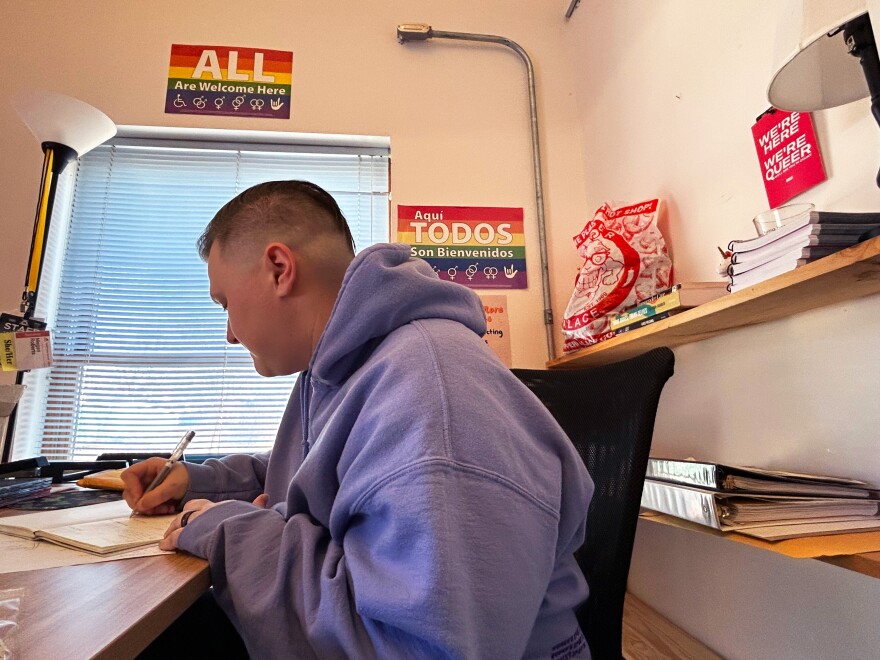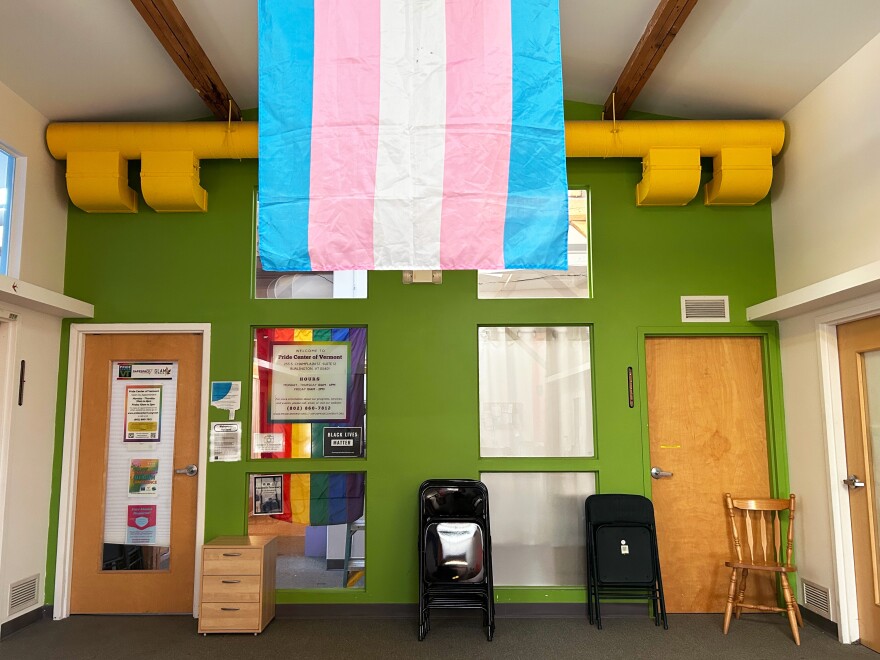Vermont’s Attorney General’s Office and Human Rights Commission said Thursday that the state will continue to enforce local laws that protect people from discrimination based on their gender identity.
This comes after President Donald Trump signed an executive order stating that the federal government will only recognize two, unchangeable sexes — male and female — and will rework federal funding and policies accordingly.
Trump’s executive order effectively rejects the widely recognized medical condition known as gender dysphoria. That’s when someone experiences psychological distress because of a mismatch between their sex assigned at birth, and their gender identity.
The American Psychiatric Association says that forcing someone with gender dysphoria to identify as their sex assigned at birth can harm a person’s mental health, including increasing the risk of suicide.

While state officials in Vermont are pledging to protect transgender and nonbinary people, organizations that work with these communities say people are worried. And they’re trying to prepare for the changes happening at the federal level.
Planned Parenthood of Northern New England, for example, has reported an increase in calls from patients wanting to talk about maintaining access to gender-affirming care.
And at the Pride Center of Vermont, Trans Program Manager and SafeSpace Advocate Em Russo says people are thinking through gender markers on their documents, coming together in support group settings and — finding moments of joy.
Russo sat down this week with Vermont Public health equity reporter Elodie Reed inside the Pride Center’s library in Burlington.
This interview was produced for the ear. We highly recommend listening to the audio. We’ve also provided a transcript, which has been edited for length and clarity.
Elodie Reed: We now have one executive order that Trump has signed, declaring there are two sexes. I guess I'm wondering how that's landing — I know it's only been a couple days, but how that's landing so far in the community?
Em Russo: I mean, I think the vibes are palpable here — and I think that it’s a tough time. And that first executive order is obviously so harmful and invalidating for so many folks in our community.
But we, you know, added a couple of additional support spaces right before this to try to, like, lead up, for people to come and talk about what's coming up for them. And then doing some more of that behind-the-scenes work with the ACLU and legal teams to know more of our rights, and know what implications this will have on us as an organization and also a community.
We can't be erased. We have always been here. We always will be here.

Elodie Reed: Do you know what the implications will be yet?
Em Russo: Invalidating so, so many people's identities, obviously doesn't feel good, but what legal implications that will have, we don't necessarily know what that will look like yet.
There were ways that we were working with folks beforehand to kind of — if this happens, what can we do to protect ourselves? Is it changing your paperwork now before anything goes to the courts? And that is like an individual's choice, right? So some people think, "Yes, I want all my things to match," or "No, that's not feasible."
Elodie Reed: And by paperwork, you're talking about, like, people's gender marker on their official documents, passport?
Em Russo: Yeah, that. We also did a session with a family law attorney about how to protect your family, like your queer family, at this time. And that had to do a lot with paperwork around adoption and making sure for people who are like having children to know how to best protect them and their family here in Vermont. But then also, like, when you're traveling.
Elodie Reed: Do you get federal funding for the Pride Center, and what happens now with that?
Em Russo: Yeah, we do receive federal funding. We don't know anything for certain yet. But we've worked a lot on having plans. And just like, I think that is also kind of leaning on our communities, leaning on the allies that, you know, support us.
Now is the time to come together and find diverse funding streams and figure out because we're not going anywhere. So if we have to shift course a little bit, we'll shift course.

Elodie Reed: What are the resources folks are needing most?
Em Russo: So I think lately, the needs have been really focused on accessing services. There's a lot of not knowing whether people will have access to medical care, and being able to have access to hormones has been a really big topic, as of late. We are working with pharmacies to see — 'cause we've heard there have been some shortages of hormones.
Housing is another big resource that we hear the most need for. We work with some other organizations to kind of give those resources for different housing and shelter options for folks.
And focusing our work on trans joy. So trying to, like, open this space up, the center space, to have folks drop in and be able to get some food and some warmth and just be here with community.
Elodie Reed: Can you talk a little more about joy events?
Em Russo: It's such a big focus, I think, especially now when it feels like so many rights are being taken away from our community, to create spaces where we exist and we're able to celebrate our identities and validate each other.
We have a TransPlant sale every year. That's one of our happiest events, I feel. It’s where we just see a ton of people come together and get to, like, all dork out about plants and stuff, but then also be in space together, in kind of like a block party-style event.

Elodie Reed: Do you mind if I ask, like, how you're feeling when this is, you know, your life, but also your work?
Em Russo: I am part of the community that I work in, and so I definitely have some feelings of grief. And on Inauguration Day, had some spirally thoughts as I just kind of absorbed everything that was going on. And I think it was really easy to like, just kind of feel a lot of doom and sadness and realizing just how layered and deep this is for our community.
And we have seen a lot of people leaving places where they or their kids can't get health care. And coming to Vermont as a place where there's more access to gender-affirming care and it's not illegal. Kind of just like feeling all of the weight of that, and then some gratitude of the state we live in, and just holding my friends and my community close.
It's still a little fresh, but also ready to do what's next and make sure that we're protecting people as best as we can.
Elodie Reed: I appreciate you doing this with me during a complicated week.
Em Russo: Yeah, I thank you for having this conversation, it's really important.
If you or someone you know is in crisis, you can call or text the National Suicide Lifeline at 988.
Have questions, comments, or tips? Send us a message.




